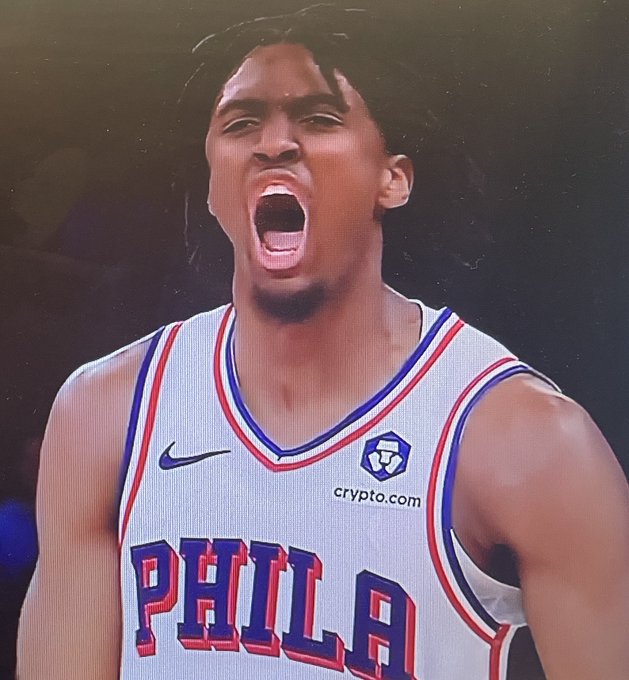In the high-stakes world of professional basketball, emotions run deep. Players battle not only their opponents but also their inner struggles. Joel Embiid, the Philadelphia 76ers’ towering center, embodies this emotional complexity. His tears, frustrations, and triumphs are on full display, leaving fans and critics alike pondering the delicate balance between vulnerability and greatness.
The comments, reported by NBACentral on Twitter, have sparked debate about sportsmanship and the pressure faced by athletes:
“NBACentral Tweeted: Charles Oakley says Joel Embiid is too big to be crying
“If you’re hurt, stay home and watch it on TV like everybody else is doing. I don’t want hear this… He’s too big to be crying. I’m sorry I said about two years ago, he could be the next Wilt Chamberlain. I don’t know. He could be the next Dunkin Donut or somebody because he just cry.” “
Charles Oakley says Joel Embiid is too big to be crying
“If you’re hurt, stay home and watch it on TV like everybody else is doing. I don’t want hear this… He’s too big to be crying. I’m sorry I said about two years ago, he could be the next Wilt Chamberlain. I don’t know. He… pic.twitter.com/0yKG8ZxAyG
— NBACentral (@TheDunkCentral) April 30, 2024
Oakley’s harsh words target Embiid’s frustration and disappointment after a series of underwhelming performances. Let’s delve deeper into this situation, exploring the factors that contribute to Embiid’s emotional response, the validity of Oakley’s criticism, and the broader conversation about sportsmanship in today’s era.
The Pressure to Perform: Joel Embiid’s Emotional Burden

Joel Embiid is a dominant force on the court, a scoring machine with a relentless work ethic. However, with that dominance comes immense pressure. He is expected to carry the 76ers on his shoulders, and falling short of those expectations can be emotionally draining. Embiid’s frustration is understandable, especially considering the team’s playoff aspirations.
Oakley’s criticism centers on the perception that Embiid’s emotional displays are a sign of weakness. The “tough guy” mentality has long been associated with professional athletes, and Oakley represents an older generation that may view outward displays of emotion as unprofessional.
Beyond the Tough Guy Facade: A New Era of Vulnerability
However, the sports landscape is evolving. Athletes are increasingly comfortable expressing their emotions, whether it’s frustration, disappointment, or even joy. This vulnerability can connect them with fans on a deeper level and humanize them beyond their athletic achievements.
Ultimately, the question of whether crying signifies weakness is subjective. Some may view it as an emotional outburst that detracts from the game. Others may see it as a display of passion and commitment, a sign that the athlete cares deeply about their performance.
ALSO READ: Jamaal Charles: Overcoming Adversity, Gold at the Special Olympics and Soaring High in the NFL World

